 |
| |
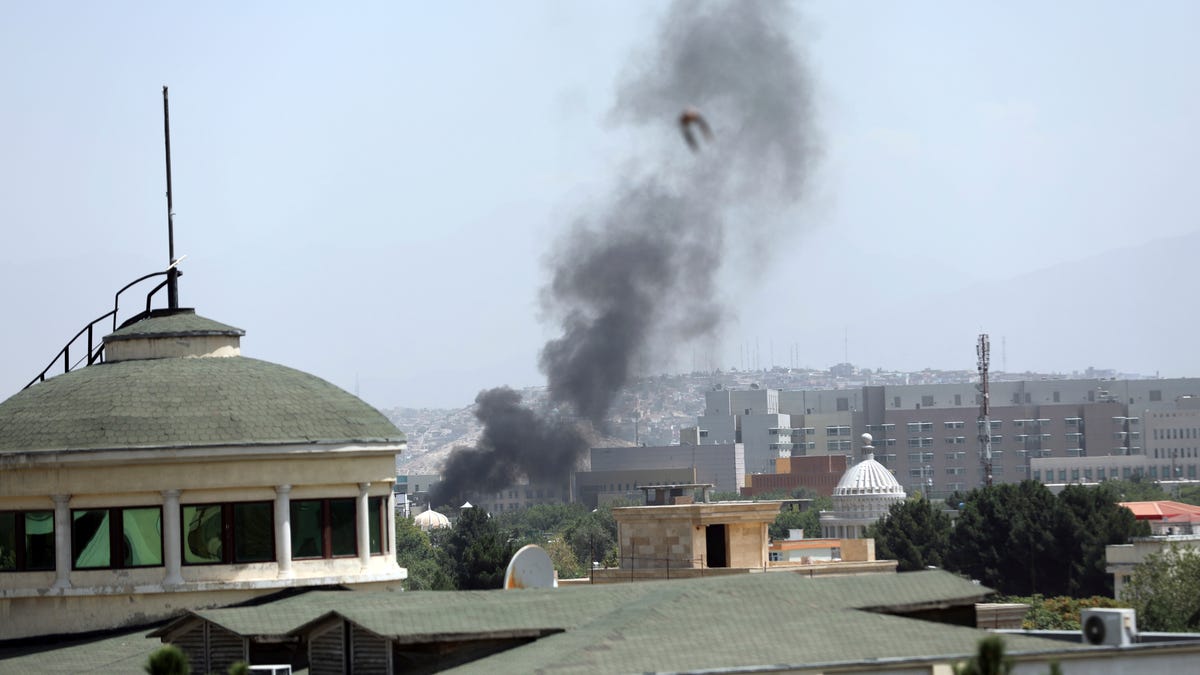 | | | Afghanistan falls | | The Taliban took control of Afghanistan's capital as part of its takeover, while the U.S. quickly worked to move personnel and Afghan allies to the city's airport. | | |
| |
| |
| |
| |
| Welcome to a new week, Daily Briefing readers. The Afghan government has fallen after the Taliban rapidly took hold of the country, with the insurgent group taking control of the capital, Kabul, as the nation's president fled. |
| In its stunning military rout, the Taliban faced little to no resistance from the Afghan security forces, even though the Biden administration had repeatedly touted their ability to fend off the insurgent group. The Pentagon spent $80 billion to train and equip Afghan forces over the past 20 years. |
| Ashley and Julius here with the latest news on Afghanistan. |
Afghan government collapses |
| Nearly two decades after the U.S. invaded Afghanistan, the nation's capital fell back under Taliban control. And just weeks ahead of the planned pullout of American troops, the American flag at the U.S. embassy in Kabul had been taken down and most embassy staff had been relocated to the city's airport. |
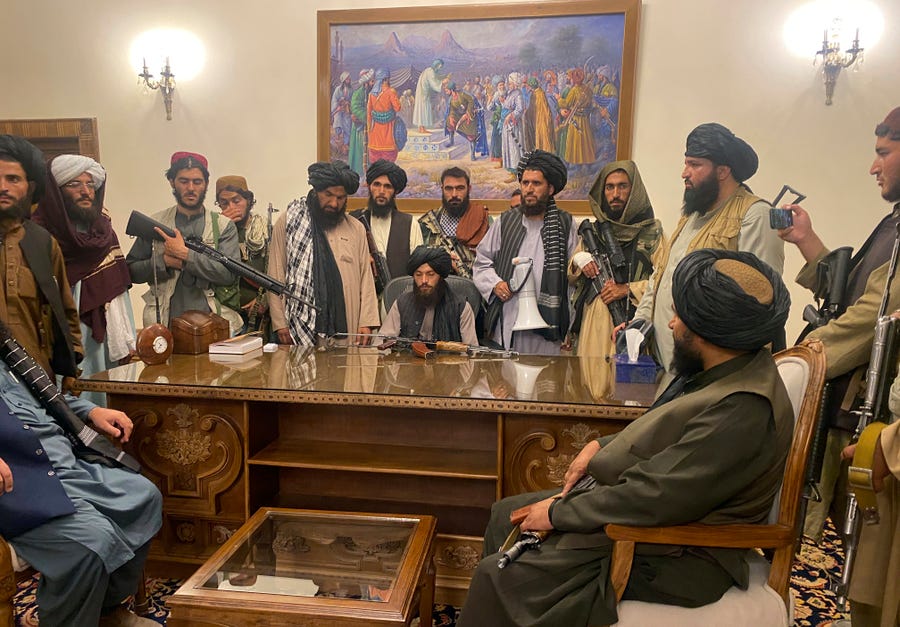 | | Taliban fighters take control of Afghan presidential palace after the Afghan President Ashraf Ghani fled the country, in Kabul, Afghanistan, Sunday, Aug. 15, 2021. | | Zabi Karimi, AP | |
How did the Taliban retake Afghanistan so quickly? |
| Defying expectations, the Taliban seized nearly all of Afghanistan in a short time, despite the billions of dollars spent by the United States and NATO over nearly two decades to build up Afghan security forces. At the start of August, the Taliban controlled none of the country's provincial capitals. Now, they are in possession of nearly all of the country's territory. |
Caught off-guard by the Taliban |
| Though many experts expected Kabul to fall, the speed of the capital's collapse clearly caught the Biden administration off-guard. Biden set a deadline of Aug. 31 to withdraw all U.S. forces from Afghanistan and bring an end to the 20-year conflict. And just last week, an American military assessment estimated it would be a month before the capital would come under insurgent pressure. |
Americans told to 'shelter in place' |
| Helicopters evacuating U.S. and allied personnel swarmed over Kabul on Sunday. The U.S. Embassy urged American citizens to "shelter in place" amid reports of gunfire at the airport on the outskirts of Afghanistan's capital city. Later, the State Department said it had moved all American diplomats from the U.S. Embassy in Kabul to the capital city's airport. Chaotic images of panicked crowds and triumphant Taliban fighters throughout Kabul cemented a picture of government collapse and American retreat. |
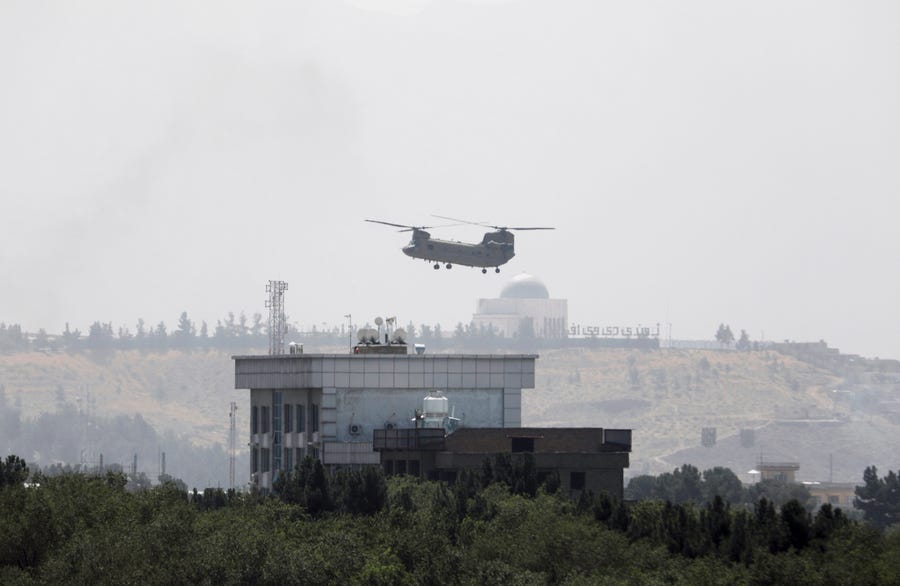 | | A U.S. Chinook helicopter flies near the U.S. Embassy in Kabul, Afghanistan, Sunday, Aug. 15, 2021. Helicopters are landing at the U.S. Embassy in Kabul as diplomatic vehicles leave the compound amid the Taliban advanced on the Afghan capital. | | Rahmat Gul, AP | |
Afghan president flees to prevent 'flood of bloodshed' |
| As Taliban fighters moved into Afghanistan's capital city, the nation's leader, President Ashraf Ghani, fled the country to an unknown destination. Ghani posted an explanation for his exit on Sunday, saying if he stayed, more Afghans would die and "bloodshed" would result. |
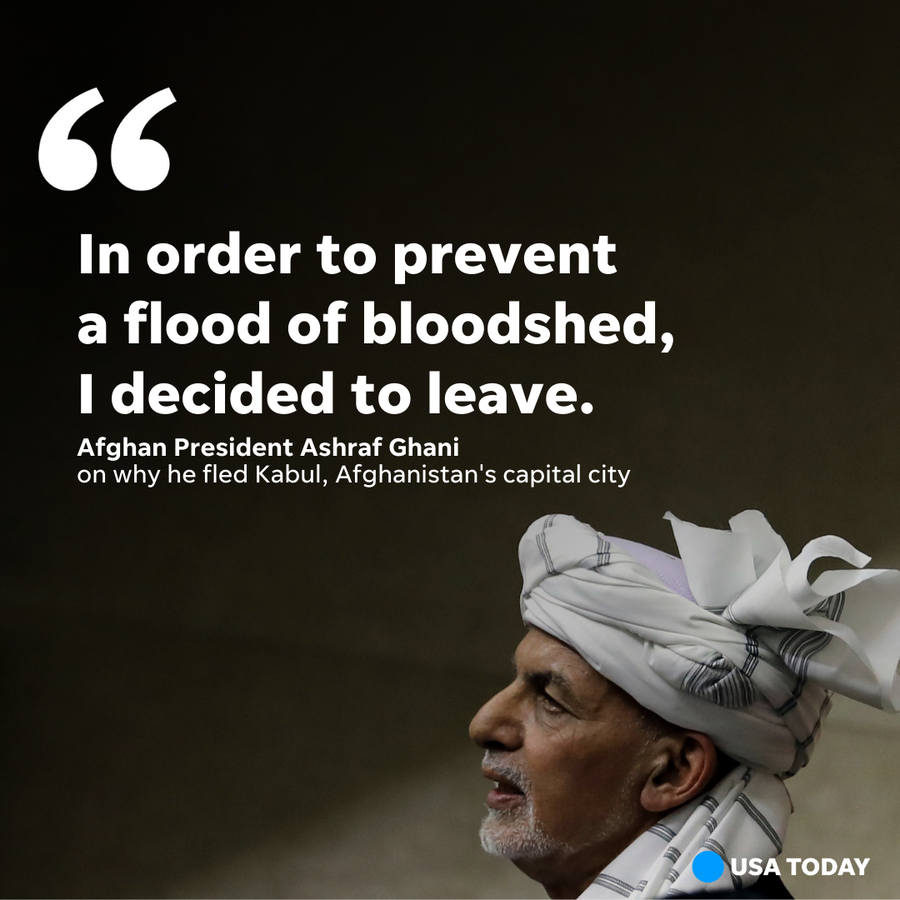 | | Hours after President Ashraf Ghani fled the country, Taliban leaders were seen in footage obtained by Al Jazeera, sitting in the presidential palace in Kabul. | | Rahmat Gul, AP | |
What else people are reading |
| 🔵 Trump claims Afghanistan withdrawal would have been 'much more successful' if he were president |
| 🔵 'No possible life' under Taliban rule: Afghan women fear murder, oppression after US withdrawal |
| 🔵 Were U.S. losses in vain? 'Forever war' in Afghanistan resulted in fewer terror attacks | Opinion |
| 🔵 Defense secretaries in their own words: US 'invented reasons' to stay in Afghanistan |
| 🔵 Is Kabul 'Biden's Saigon'? Images of chaotic exit evoke comparisons to retreat from Vietnam |
Biden's biggest defeat |
| Fairly or not, the Afghanistan withdrawal is Biden's defeat, writes Susan Page in an analysis for USA TODAY. Instead of savoring credit for ending America's longest war, the president faced withering criticism Sunday for the inept way the U.S. withdrawal from Afghanistan was executed – just the sort of chaotic exit that he had promised weeks ago would never happen. |
US sending more troops |
| The Pentagon authorized an additional 1,000 U.S. troops to be deployed to Afghanistan to help with the evacuation efforts, said a defense official who was not authorized to speak publicly. That is on top of the deployment of 5,000 troops that President Joe Biden announced Saturday would be sent to ensure "an orderly and safe" drawdown and evacuate U.S. personnel as well as Afghans who helped American forces. |
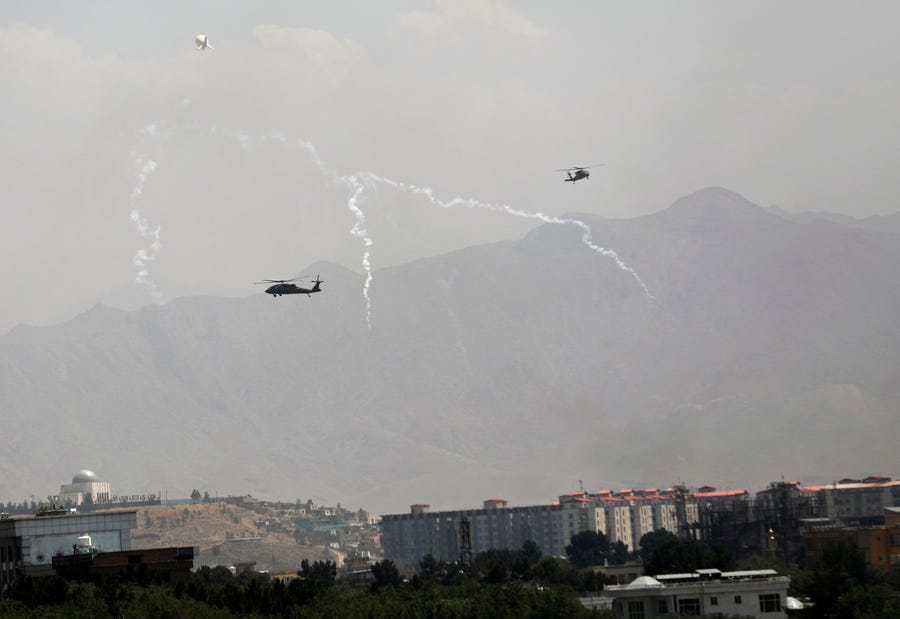 | | Anti-missile decoy flares are deployed as U.S. Black Hawk military helicopters and a dirigible balloon fly over the city of Kabul, Afghanistan, Sunday, Aug. 15, 2021. Taliban fighters entered the outskirts of the Afghan capital on Sunday and said they were awaiting a "peaceful transfer" of the city after promising not to take it by force, but amid the uncertainty panicked workers fled government offices and helicopters landed at the U.S. Embassy. | | Rahmat Gul, AP | |
Why was the US in Afghanistan? |
| The U.S. had troops in Afghanistan since October 2001 under President George W. Bush after the 9/11 terror attacks on the World Trade Centers in New York and the Pentagon just outside of Washington. The U.S. sought the al-Qaida militants who had planned the attack there and received support from the Taliban. |
Many fear Taliban will again support terrorism |
| As the Taliban retakes control of Afghanistan, many fear the militant Islamic group will reinstitute extremist policies, including support for terrorism. When it ruled Afghanistan, the Taliban allowed the militant network al-Qaida to set up a base within its borders. Led by Osama bin Laden, al-Qaida launched attacks on Western targets around the world, including the 9/11 airplane strikes on the World Trade Center in New York City. |
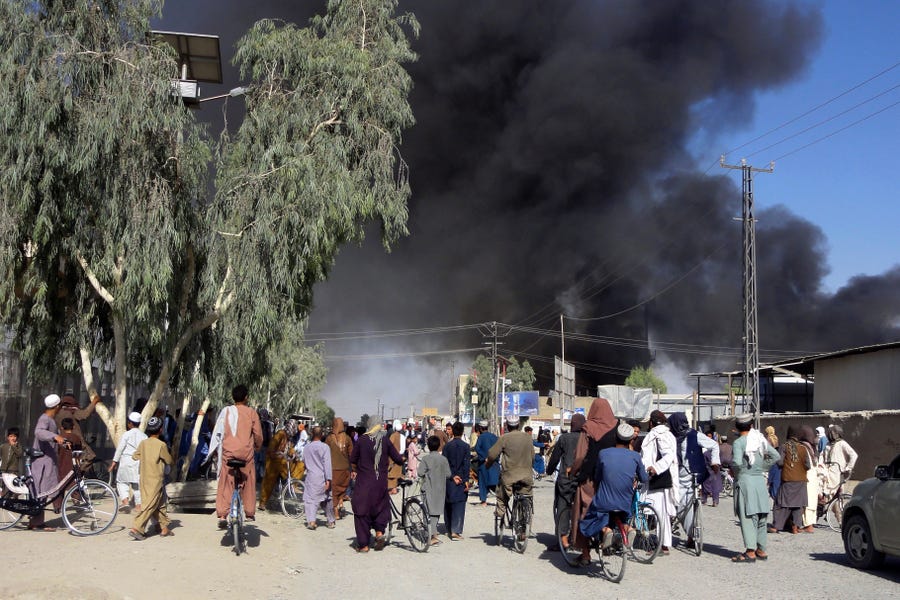 | | Smoke rises after fighting between the Taliban and Afghan security personnel, in Kandahar, southwest of Kabul, Afghanistan, Thursday, Aug. 12, 2021. | | Sidiqullah Khan, AP | |
ICYMI: More of our top stories Monday |
| 🔵 Tropical Storm Fred looms over Florida: Parts of the panhandle could be hit with up to a foot of rain and tornadoes Monday and Tuesday, the National Weather Service said. |
| 🔵 More than 1,200 people have died after a magnitude-7.2 earthquake hit the town of Port-au-Prince in Haiti. In response to the tragedy, political leaders, volunteers and residents from across the globe have offered help for Haiti. |
| 🔵 'Naked in the world of COVID': Some Johnson & Johnson COVID-19 vaccine recipients feel unprotected against delta and want mRNA shots. |
| 🔵 Hospitalizations due to COVID-19 have hit pandemic highs among people under age 50, according to the Center for Disease Control and Prevention. The U.S is also accounting for more than one-fifth of the world's total cases for the first time since February. |
| 🎧 On today's 5 Things podcast, we have the latest from the rapidly changing situation in Afghanistan. You can listen to the podcast every day on Apple Podcasts, Spotify, or on your smart speaker. |
| |
| |
| |
No comments:
Post a Comment